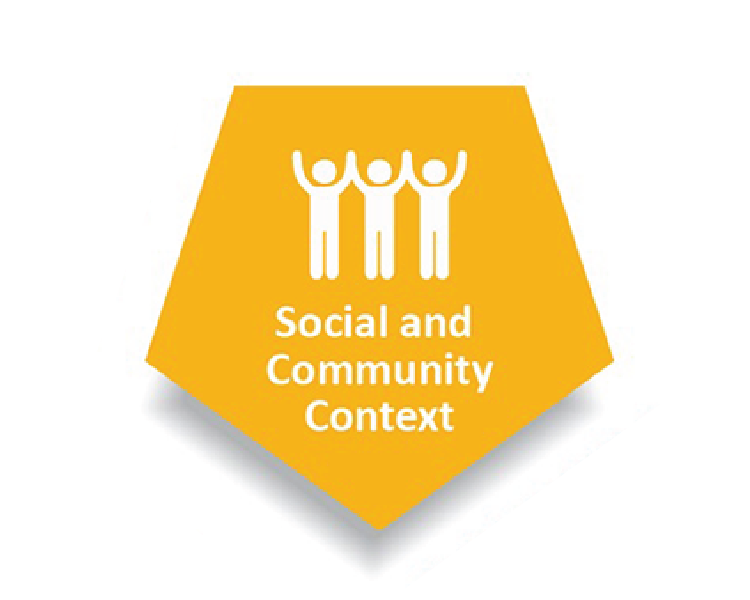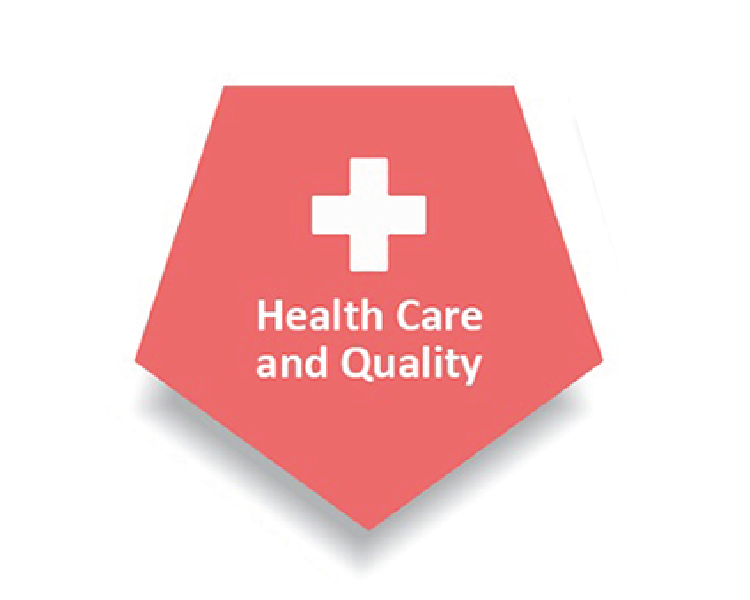Addiction is a complex condition that can affect individuals from all walks of life, irrespective of their background, age, or socioeconomic status. While anyone can be affected by addiction regardless of socioeconomic status, populations experiencing health inequities due to social factors – such as education, income and housing – do encounter addiction at a higher rate. Health inequity refers to a systematic difference in health we see affecting population groups due to social conditions said group is brought up in. Health inequities are an unfair and avoidable difference in health status that are socially determined. These factors are referred to as the social determinants of health (SDoH). In this post, we’re exploring what the SDoH are, and the role they play in addiction recovery. Keep reading to learn more!
What are the Social Determinants of Health?
Social determinants of health (SDoH) are the non-medical factors that influence health outcomes. These determinants are socioeconomic factors, like education, housing and food security, that influence the overall condition of an individual’s life. Furthermore, they have a direct impact on the health status of that individual.
When analyzing the importance of social factors in an individual’s overall health, it’s important to note that medical care still plays a vital role in this process. While medical care is a critical piece, researchers are finding that it is not the only direct contributor to health. This all to say, we may have been underestimating the overwhelming role that social factors play in determining an individual’s physical wellness. Through recent studies, we see clearly the direct impacts of SDoH, for example that improved social conditions, such as income, correlates to the highest level of health.
A more complicated pathway, education, can be seen directly impacting health as well with greater educational attainment being linked to health-promoting behaviors, and an earlier adoption of health-related recommendations.
All social determinants point us in the direction of analyzing systems in place which influence our pathways in life. One determinant that specifically calls us to acknowledge this is race. Systematic constraints placed on individuals due to long-standing racial inequalities can be linked to ALL SDoH – education, income, and housing. One study offers the example that Black and LatinX Americans are more likely to reside in disadvantaged neighborhoods with inadequately resourced schools and hence to have lower educational attainment and quality with resultant health effects through pathways discussed above.
These studies and more show us how social determinants make up a complex web of socioeconomic factors that have profound effects on the overall health of an individual. One aspect of health that falls within this is substance use disorder. Keep reading for more on how SDoH relates to substance use disorder, and addiction recovery.
Why are Social Determinants of Health Important in Addiction Recovery?
Social determinants of Health (SDoH) contribute to the likelihood an individual is to experience substance use disorder in a variety of ways. For example, this study outlines that opioid overdoses were concentrated in more economically disadvantaged zip codes. This was indicated by higher rates of poverty and unemployment as well as lower education and median household income.
Studies viewing the relationship between homelessness and substance use disorders also lends us insight into how individuals experiencing homelessness are disproportionately affected by substance use disorder at the exceedingly high rate of 64%.
This research, and countless other studies, outline the significant role that SDoH plays in substance use disorder and recovery. As members of the recovery community, and as service providers, we must strive to offer everyone suffering from addiction the highest chances possible at overcoming it. The first step to addressing the SDoH and how they impact the recovery process is understanding what they are. Keep reading to learn more about the 5 domains of SDoH.
Domains of the Social Determinants of Health
The social determinants of health can be grouped into 5 primary domains:
Economic Stability
This domain refers to an individual’s overall economic stability, encompassing employment, housing, and access to health care and healthy foods.
Education Access and Quality
This domain ladders up directly to employment, covering all academic opportunities across all levels of education.
Health Care Access and Quality
This domain refers to the access to adequate healthcare resources, like care providers and medications, that an individual has.
Neighborhood and Built Environment
Referring to the area in which individuals live, work, grow and age in, neighborhoods and overall environmental factors like air quality, safety, and water quality contribute to their overall health.
Social and Community Context
Positive social and community relationships, as well as the safety and support offered through these systems, can be found within this domain.
A Framework for Your Practice
Incorporating the social determinants of health into your everyday practice with clients can offer you insight into areas of their life that may contribute to their overall wellbeing. As recovery is centered around establishing a healthy life abstaining from problematic use, SDoH can be used as a tool to better guide your clients to a healthier lifestyle.
Learn More About SDoH
Want a deeper dive into Social Determinants of Health? We explore each of the 5 SDoH domains in the posts below – take a look now!
Sources:
Addiction Help. “The Correlation Between Addiction and Homelessness.” Addiction Help, 2023. https://www.addictionhelp.com/addiction/homelessness/#:~:text=People%20who%20are%20homeless%20suffer,dependency%20while%2026%25%20abuse%20drugs.
Accessed 15 June 2023.
Annual Review on Public Health. “The Social Determinants of Health: Coming of Age.” Paula Braveman, Susan Egerter, and David R. Williams, 2011. https://www.annualreviews.org/doi/pdf/10.1146/annurev-publhealth-031210-101218.
Accessed 14 July, 2023.
Harvard Health Publishing. “Poverty, homelessness, and social stigma make addiction more deadly.” Harvard Medical School, 2021. https://www.health.harvard.edu/blog/poverty-homelessness-and-social-stigma-make-addiction-more-deadly-202109282602.
Accessed 14 July 2023.
NIH. “Urban-rural variation in the socioeconomic determinants of opioid overdose.” National Library of Medicine, 2019. https://pubmed.ncbi.nlm.nih.gov/30592998/.
Accessed 14 July 2023.
U.S. Department of Health and Human Services. “Social Determinants of Health.” Healthy People 2030, 2023. https://health.gov/healthypeople/priority-areas/social-determinants-health.
Accessed 14 July 2023.
WHO. “Social determinants of health.” World Health Organization, 2023. https://www.who.int/health-topics/social-determinants-of-health#tab=tab_1.
Accessed 14 July 2023.





